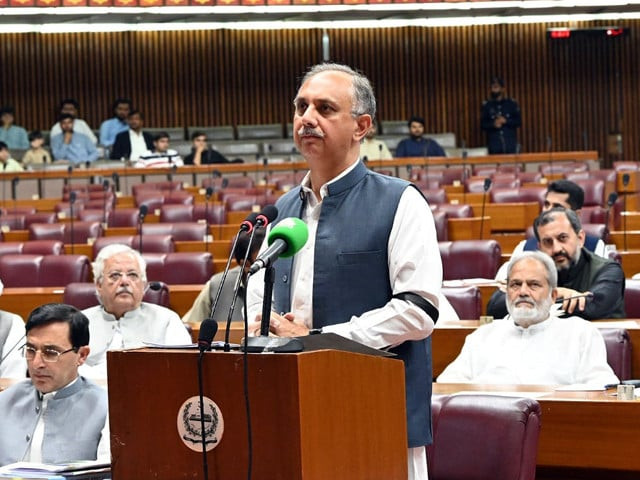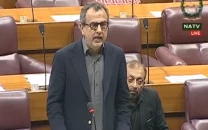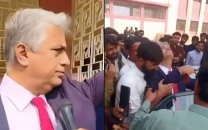PTI's Omar Ayub slams govt over new amendments
Omar Ayub criticised the military chiefs' tenure extension, saying it has ruined the careers of many officers.

Opposition leader Omar Ayub Khan in the National Assembly criticised the government for passing laws under duress, claiming that the opposition was not allowed to speak. He argued that these bills should have been discussed in the standing committees first.
Speaking on a point of order during a session chaired by Deputy Speaker Syed Mir Ghulam Mustafa Shah, the PTI leader said, "Yesterday, the law was passed with force, and the house was full. Today, the force has been removed, and the house is empty." He also criticised the extension of the military chiefs' tenure, stating, "It has ruined the careers of many officers."
Omar Ayub said, "They keep talking about May 9, showing students the damage at Jinnah House. We will also show the students of Khyber Pakhtunkhwa the destruction caused by federal forces at KP House. We will show our youth how one province was attacked."
The opposition leader further questioned, "Have our forces become like those of Hulagu Khan?" He added, "The people are suffering from inflation, yet the government is focused on passing bill after bill. This is not a government, but a regime and a mafia. They are afraid of a person sitting in jail.
He further said, "When our government was in power, GDP was at 6%. Come, take a camera and walk through the markets, ask the public if inflation has decreased. You can even ask the security guard standing next to you if inflation has gone down."
He also pointed out, "Sardar Akhtar Mengal resigned from this assembly, but not a single ear seemed to listen."
During the session, Deputy Speaker Syed Mir Ghulam Mustafa Shah allowed the PTI defected member, Aurangzeb Kucchi, who joined the ruling coalition, to speak. In response, PTI members began chanting "turncoats".
Aurangzeb Kucchi, addressing the assembly, said, "I am standing under the names of Allah and I swear by those that if I have taken even a single rupee, I will be held accountable. PTI is a big party, and I want to make it clear that when the forward bloc was forming, I helped save it."
Amid the opposition's uproar, the Deputy Speaker adjourned the session indefinitely.
Army chief’s tenure extended to 5 years
The government on Monday extended the tenure of the army chief from three to five years through an amendment to the Pakistan Army Act of 1952, and did away with the retirement age of a four-star general, allowing the country’s top soldier to remain in uniform beyond 64 years of age.
The first working day of the week not only saw major changes in the Army Act but the government also succeeded in passing two other pieces of legislations, one related to increasing the number of judges in the superior judiciary and the other amending the Practice and Procedure Act of the top court.
As per the amendments to the Army Act, the retirement age and service limits will not be applicable on the chief of army staff (COAS) during his tenure of appointment, reappointment and/or extension. It says that the COAS “shall continue to serve as a General in the Pakistan Army”.
Previously, Section 8C of the Army Act stated that the appointment, reappointment or extension was subject to a maximum age of 64 years. Now, not only the age bracket has been removed but the words “and/or” have been added between reappointment and extension, leaving the room for a longer stay in the office. Identical amendments have been made in the navy and air force laws.



















COMMENTS
Comments are moderated and generally will be posted if they are on-topic and not abusive.
For more information, please see our Comments FAQ